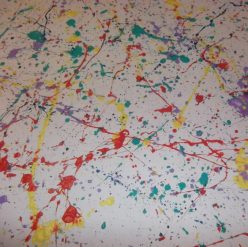ComAlt, Sarah Williams
Seminar Reading Response Paper, wk 8.
Zoe Wright
Tompkins section of chapter 5, bell hooks “eating the other”
“Just as transportation technology revolutionized what was eaten where, and what markets farmers, dairymen, or fishermen were producing for, the revolution in media was integral to the consumer phantasmagoria of the Gilded Age – the beginning of the unending barrage of visual stimuli that we now take for granted.” (Tompkins, 147)
“Cultural appropriation of the Other assuages feelings of deprivation and lack that assault the psyches of radical white youth who choose to be disloyal to western civilization. Concurrently, marginalized groups, deemed Other, who have been ignored, rendered invisible, can be seduced by the emphasis on Otherness, by its commodification, because it offers the promise of recognition and reconciliation. When the dominant culture demands that the Other be offered as sign that pro-gressive political change is taking place, that the American Dream can indeed be inclusive of difference, it invites a resurgence of essentialist cultural nationalism. The acknowledged Other must assume recognizable forms.” (hooks, 370)
“Gilbert & Sullivan addressed gender stereotyping in their operas, with characters such as Katisha of ‘The Mikado’ and the fairy queen from ‘Iolanthe’, blurring the lines between masculine and feminine gender conventions of the time. Lines and quotes from Gilbert & Sullivan operas have made their way into everyday usage. Phrases such as ‘short, sharp shock’ and ‘let the punishment fit the crime’ are used today, along with ‘Pooh-bah’, a phrase used to describe someone who is self-important or high-ranking, who either exhibits inflated self-importance or has a position and title, but with no real authority.” (2016)
I chose the line from Tompkins because it struck a chord in some of my previous interests and the early education I got from my family. I have had a lot of conversations about how technology, both transportation and media have influenced history and social interactions, and that really struck a chord with me. The phrases a short bit later ‘advertising poem’ and ‘consumer testimonial’ reminded me of the way my father used to describe television advertisements – thirty, sixty seconds long – as a form of high art, because it took such a short time to change a person’s mind, and to create an action in another person that that person wouldn’t have taken if they had not seen the advertisement. I also chose this line because recently I watched a video on what isolation and lack of stimulation does to the brain, and how the lack of stimulation, and interaction can for extended periods of time do so much as to cause brain damage, there was even a brief discussion of how solitary confinement affects inmates. The phrase about the unending visual stimuli reminded me of that video, and that stimuli of some kind is necessary to our lives.
I chose the lines from hooks because it felt like a very concise summation in a way of what had been discussed before about young men considering contact, in this case ‘fucking’, with the Other as a kind of experience gain, a rite of passage. That it was not to them a form of racism to expect that an other had more life experience, that it was an act to gain experience, to allow another to act upon them and change them. (hooks, 368) I found these passages interesting because it’s a really intricate and dynamic conversation to have, where the lines of racism and interaction intersect and why and how. It brings up discussions of tokenism, exoticism, the demand for ‘authenticity’, and many other discussions of racism and representation in media and cultural thought. Its exhausting to pick apart these discussions, especially in such a small space, but the act of noting it down as important or catching in a way saves it for me to come back to later, to allow it to be in the back of my mind until something else comes up and makes a connection that creates a kind of unified sense.
I chose the lines from the article because Gilbert and Sullivan’s Mikado was briefly mentioned in the tompkins chapter and I wanted to see if I could find a comment on the way Gilbert and Sullivan’s operetta’s played with various social and political dynamics in really interesting and intricate ways. Because of course there is very problematic language in G&S operettas, but there are also elements that are critiquing social structures that still exist in some form, and I find that really very cool and interesting to think about. Again, the thought is not necessarily complete or thoroughly processed for lack of time, but it is there waiting for further connections, as are many spare learned things in my mind.
Referenced article:
How did Gilbert & Sullivan influence modern culture? (2016, May 31). Retrieved from http://grimsdyke.com/cultural-influences-gilbert-sullivan/
